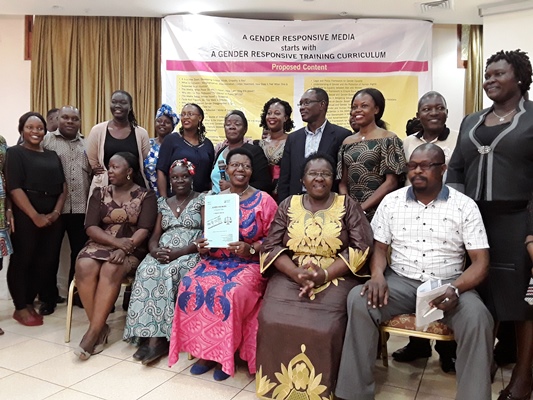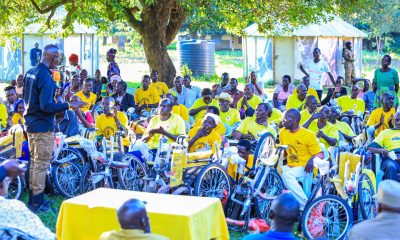News
Gender-responsive media curriculum receives praise

Participants
Advocates of women empowerment have lauded the introduction of a draft curriculum aimed at equipping journalists and media managers with knowledge to produce content that gives balanced attention to the stories and concerns of women and men in Uganda.
The curriculum that targets journalism trainees at certificate, diploma and bachelors degree level, was developed by the Uganda Media Women Association (UMWA) after consultation with academicians at Universities, the United Nations Uganda offices and several other development agencies.
While officiating at the launch of the draft curriculum, outspoken NRM critic and former minister of Ethics Dr. Miria Matembe, decried what she described as hostile portrayal of women politicians by the Uganda media.
“I want to say that being one person who had been negatively portrayed by the media, I am glad to witness the launch of this curriculum that targets the media because the media influences so many people,” said Matembe.
She was supported by Margaret Sentamu, the Executive Director of UMWA who pointed out that through research, they have found that men dominate 80% of all news content and visibility.
Sentamu said: “The proposed course unit responds to studies done on the media, across the globe that show a huge gender gap in especially the content published. Whether news sources or subjects, men are close to 80% superior while women are judged, victimised, questioned, or sexualised to say the least.”
The launch of the draft curriculum was witnessed by different stakeholders from the education sector who included the National Curriculum Development Centre, UNEB among others.
Sentamu said the draft document will be shared with relevant government institutions in the education sector for refining so that it can be mainstreamed in all journalism training institutions as well as media houses.
Representatives from the United Nations UN Women Uganda office, the Ministry of ICT, Universities and media training institutions, civil society organisations welcomed the initiative and pledged to support its rollout and popularisation.
Comments


























